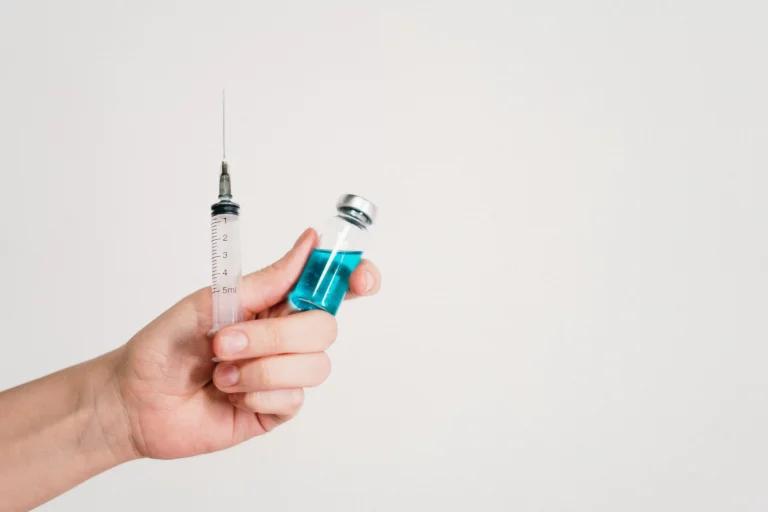
December 22, 2025 (Current Version)
April 22, 2025
Retatrutide is a new weight loss injection showing promise among the popular fat loss medications Wegovy/Ozempic (semaglutide) and Zepbound/Mounjaro (tirzepatide). It is manufactured by Eli Lilly for the treatment of obesity. In addition to obesity, retatrutide is being tested for its effectiveness in type 2 diabetes management.
One question on everyone’s mind is what is the starting dose or dosage? Like any other drug it is safer to start medications slowly because not everyone can tolerate a full dose. Lets dive into retatrutide dosages.
📝 How does retatrutide work?
Retatrutide works by simultaneously targeting three key hormone receptors:
- The GIP receptor (glucose-dependent insulinotropic polypeptide)
- The glucagon-like peptide-1 (GLP-1) receptor
- The glucagon receptor
This triple-agonist activation sets retatrutide apart from traditional weight loss medications, offering the potential for enhanced efficacy and a more comprehensive impact on the underlying mechanisms of obesity.
💉 Retatrutide dosing
What is the meaning of starting dose?
Starting dosing or initial dose refers to the starting amount of a drug given to a patient when beginning treatment, typically a lower dose of drug. This concept is critical in ensuring that the patient receives an effective therapeutic effect while minimising the risk of adverse events.
What is the starting dose of retatrutide?
A healthcare professional will start the dose of retatrutide at a lower level with the aim of allowing your body time to adjust. For most people, the starting dose is 1 mg per week.
Over weeks or months, this amount is increased in a step-wise method (often called titration) to help your body respond better while keeping side effects to a minimum.
Healthcare professionals will look at some of the following to determine the starting dose:
- Weight or BMI (body mass index)
- Overall health
- Medical history
- Previous response to similar weight loss drugs
How does titration work?
Titration of a drug is a common method used by healthcare professionals, especially for drugs that affect nerve or hormonal pathways or drugs with a narrow therapeutic range between the effective dose and toxic dose.
Titration means slowly increasing the dose of a medicine by very small amounts over days, weeks, or even months, to find the right dose that is effective for you. During the titration process the healthcare professional can see how your body reacts to the medicine without giving you excessive side effects.
As retatrutide has still not been launched yet, the exact doses of the medication have not been decided, but a common titration schedule for retatrutide may look like:
- Weeks 1–4: 1 mg per week
- Weeks 5–8: 2 mg per week
- Weeks 9–12: 4 mg per week
- Weeks 12 plus, higher doses of 8mg and highest doses of 12mg may be achieved
This structured dosing aims to enhance safety and effectiveness.
What is a maintenance dose?
The maintenance dose of a drug is the amount required to maintain a desired steady drug concentration in the body. Once you’ve reached the ideal dose, you’ll continue with this. Your healthcare provider will help determine what works best for you based on your progress and how your body is responding.
Adjustments of dose for specific factors
Some people may need a slightly different approach to dosing.
For example:
- Diabetes: The dose may need closer monitoring to manage blood sugar levels
- Age: Older patients may need adjustments to be made to match their metabolism
- Underlying health conditions: A more tailored treatment plan may be needed
🥼 What is the starting dose of retatrutide for weight management?
A trial published in the New England Journal of Medicine enrolled adults with a BMI (body mass index) of 30 or higher, or between 27 and 30 with weight-related conditions (e.g. high blood pressure, high cholesterol). This study was a double-blinded, randomized and placebo-controlled trial. Patients were given different doses of retatrutide or a placebo once a week, for 48 weeks. Here are the results:
Dose-dependent weight loss
The phase 2 trial showed a dose-dependent relationship between retatrutide and weight loss. As the dosage increased, the amount of weight reduction also increased, with the 12 mg highest dose group achieving the most substantial results. This dose-response relationship suggests that healthcare providers can tailor the retatrutide regimen to the individual needs and preferences of their patients, potentially maximising the weight-loss outcomes.
At the 24-week mark, participants receiving the drug experienced reductions in body weight, ranging from -7.2% in the 1 mg group to -17.5% in the 12 mg group, compared to -1.6% in the placebo group.
The weight-loss results continued to the 48-week endpoint, with the 12 mg retatrutide group achieving a mean weight reduction of -24.2%, while the placebo group only saw a -2.1% change. Overall, a substantial proportion of the retatrutide group (64-100%) were able to achieve a significant weight loss of 5% or more, compared to just 27% in the placebo group.
📊 Side effects of retatrutide
Like any treatment, retatrutide can cause side effects, especially when adjusting dosages. Common side effects include nausea, dizziness, or diarrhoea, but these gastrointestinal (GI) side effects usually go away as your body gets used to the treatment.
While retatrutide has generally been well-tolerated, clinical trials have also revealed a dose-dependent pattern with GI side effects. Participants receiving higher doses of the drug were more likely to experience mild-moderate GI issues, such as nausea, vomiting, diarrhoea, and constipation.
Overall, the trials found that a lower starting dose (2 mg) during the dose increasing phase could help reduce the frequency and severity of GI side effects, compared to a higher initial dose (4 mg). This suggests that healthcare providers can use a dose-titration strategy to achieve the balance between weight-loss efficacy and tolerability for individual patients.
📝 Conclusion
Retatrutide is similar to the other subcutaneous weight loss drugs such as Mounjaro and Wegovy. It is important to realise that the doses for retatrutide are not fixed and will need further studies to confirm the doses and dosing schedule.
Sources
- Unleashing the power of retatrutide: A possible triumph over obesity and overweight: A correspondence – PMC
- Triple–Hormone-Receptor Agonist Retatrutide for Obesity — A Phase 2 Trial – New England Journal of Medicine
- Lilly’s phase 2 retatrutide results published in The New England Journal of Medicine show the investigational molecule achieved up to 17.5% mean weight reduction at 24 weeks in adults with obesity and overweight – Eli Lilly and Company
Medical Disclaimer
NowPatient has taken all reasonable steps to ensure that all material is factually accurate, complete, and current. However, the knowledge and experience of a qualified healthcare professional should always be sought after instead of using the information on this page. Before taking any drug, you should always speak to your doctor or another qualified healthcare provider.
The information provided here about medications is subject to change and is not meant to include all uses, precautions, warnings, directions, drug interactions, allergic reactions, or negative effects. The absence of warnings or other information for a particular medication does not imply that the medication or medication combination is appropriate for all patients or for all possible purposes.











